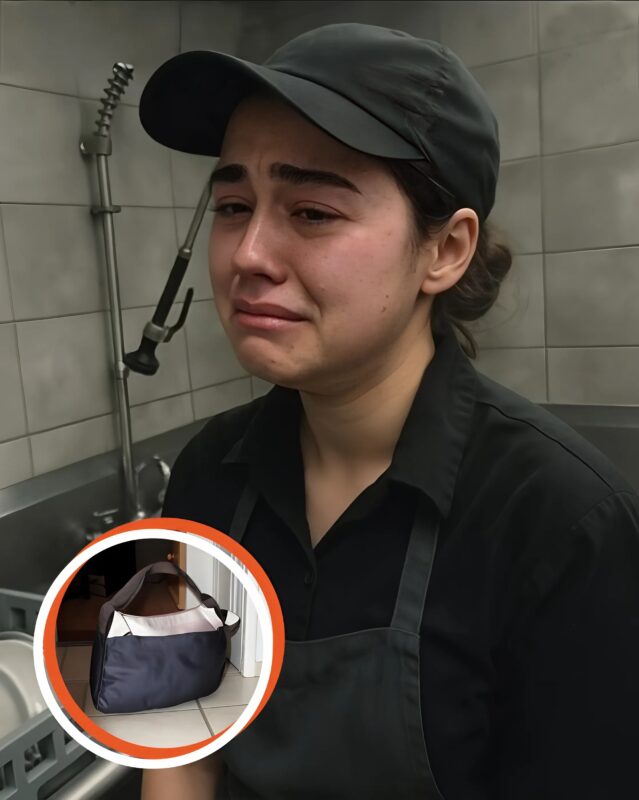Hugo owned a successful restaurant, but his ego was even bigger than his waistline. At 50-something, he still believed he had a way with women—especially his young employees. So when Alina, a quiet 22-year-old, joined as a dishwasher, he saw her as another conquest.
What he didn’t know was that Alina was a widow, left to raise her baby girl alone after her partner died in an accident. She took the job out of sheer necessity, ignoring whispers from coworkers about Hugo’s inappropriate behavior.

One night, Hugo cornered her with a rose and an offer: a lavish spa weekend, just for her. Alina shut him down immediately. “I’m here to work,” she said firmly before walking away.
Rejection stung. Hugo grew bitter, watching her closely until he noticed something odd—Alina always carried a large bag to the locker room. Convinced she was stealing, he waited for his moment.
During a busy lunch shift, he accused her in front of everyone, yanking the bag from her hands. When he dumped it out, instead of stolen silverware or food, a tiny baby tumbled onto the table, blinking up at the crowd.

Alina sobbed as she explained: “I have no one to watch her. I bring her with me because I can’t afford daycare.”
Hugo’s anger evaporated. The baby’s face brought back memories of his own child, lost years ago in a car crash. Tears streamed down his face as he apologized publicly.
From that day on, Hugo changed. He gave Alina paid leave, a raise, and even helped arrange childcare. More importantly, he stopped harassing his staff and started seeing them as people—not objects.
Sometimes, it takes a humbling moment to remind us of our humanity.


